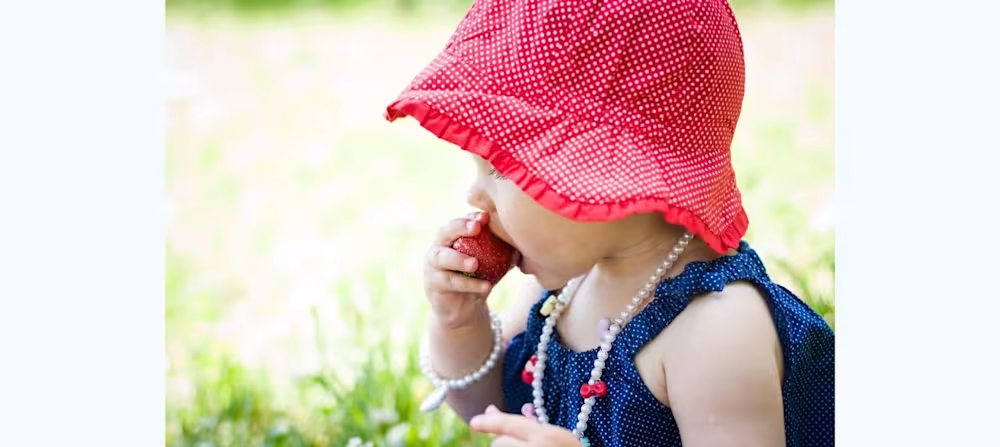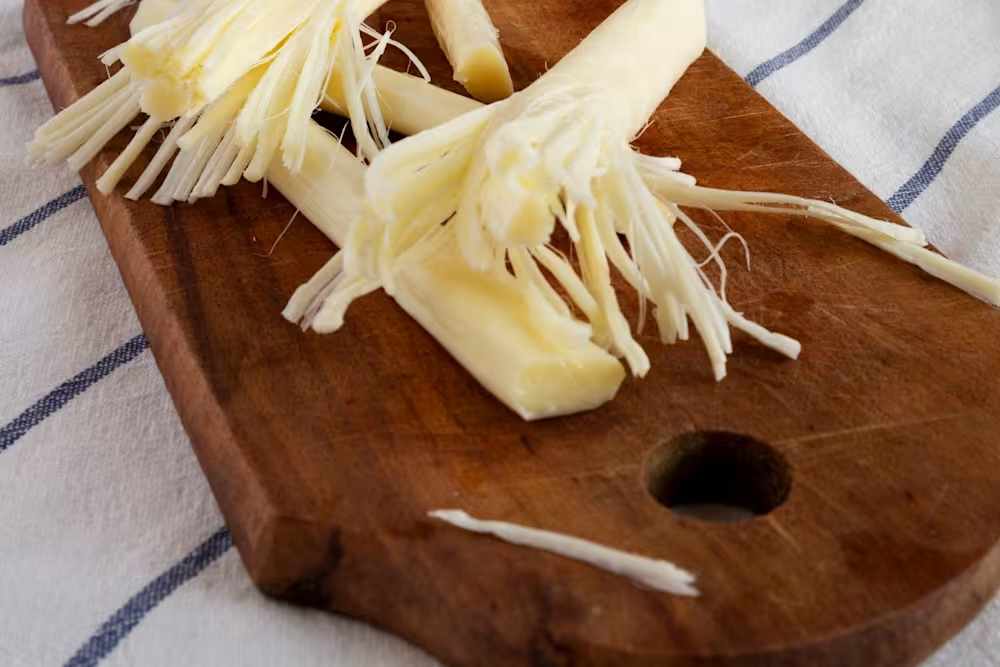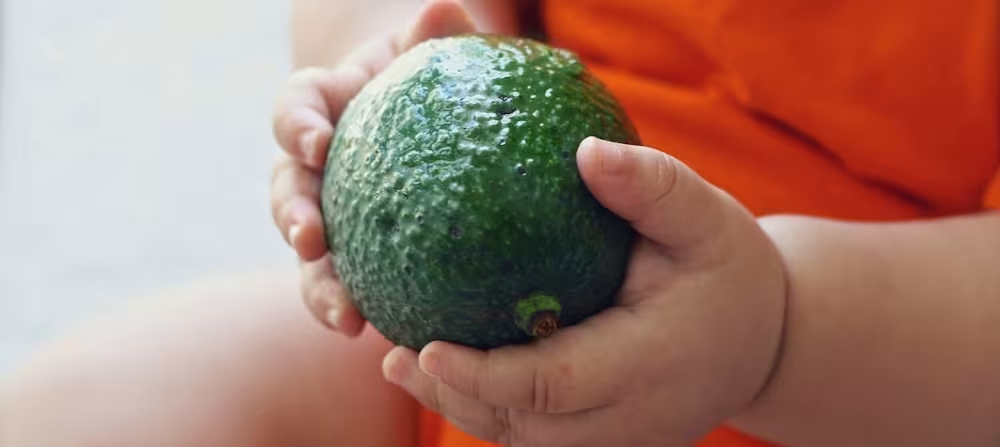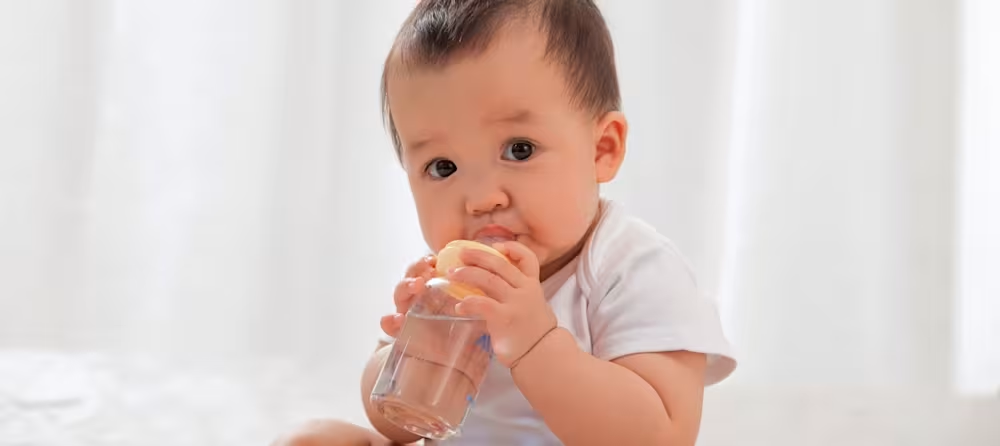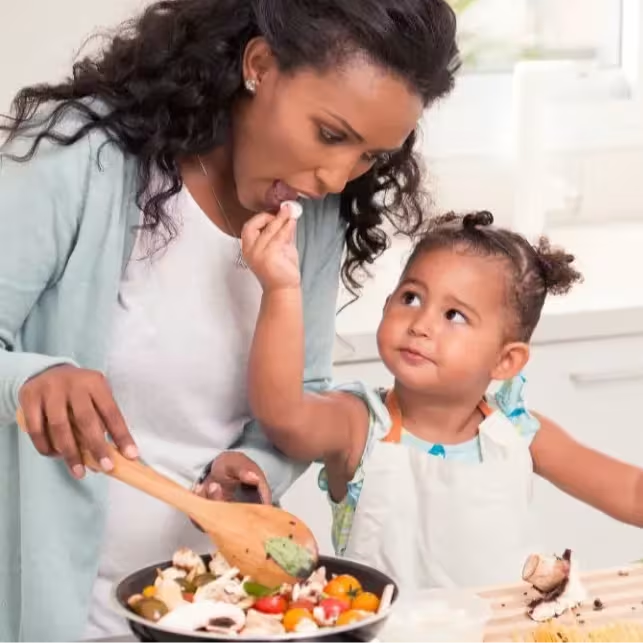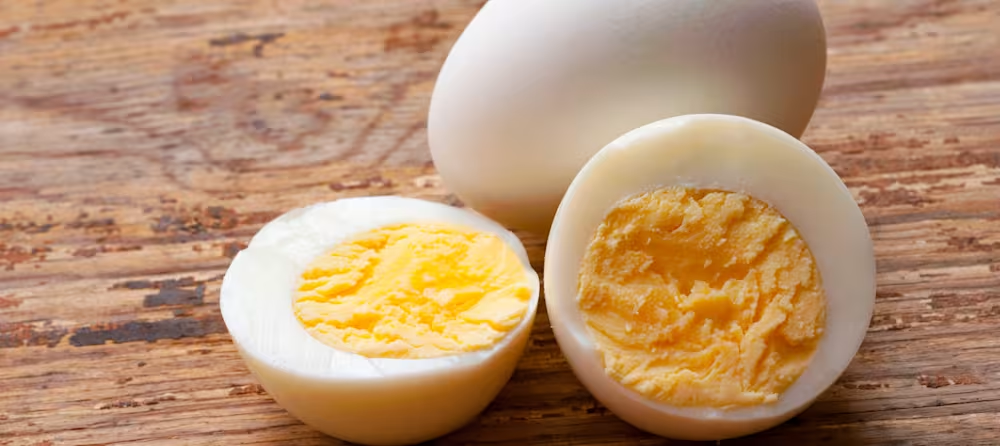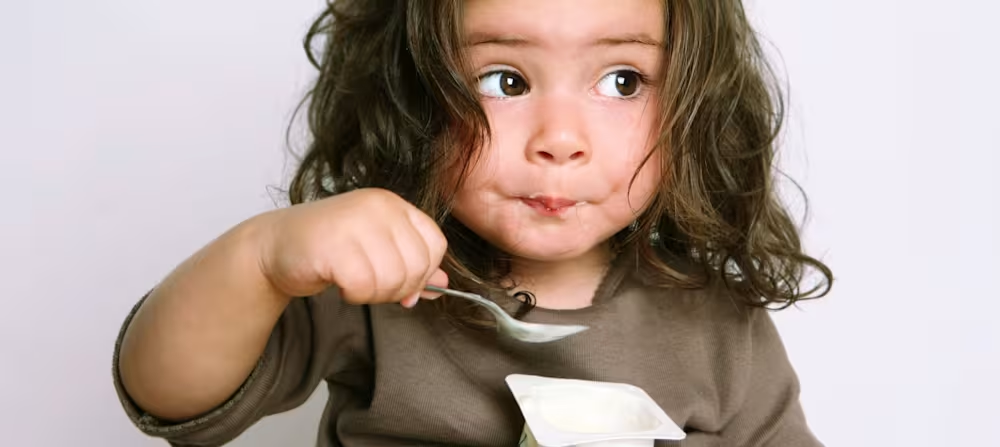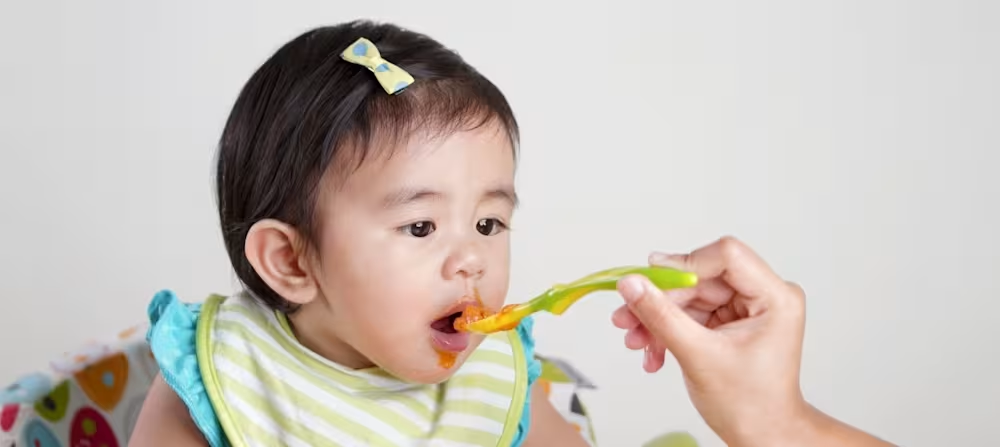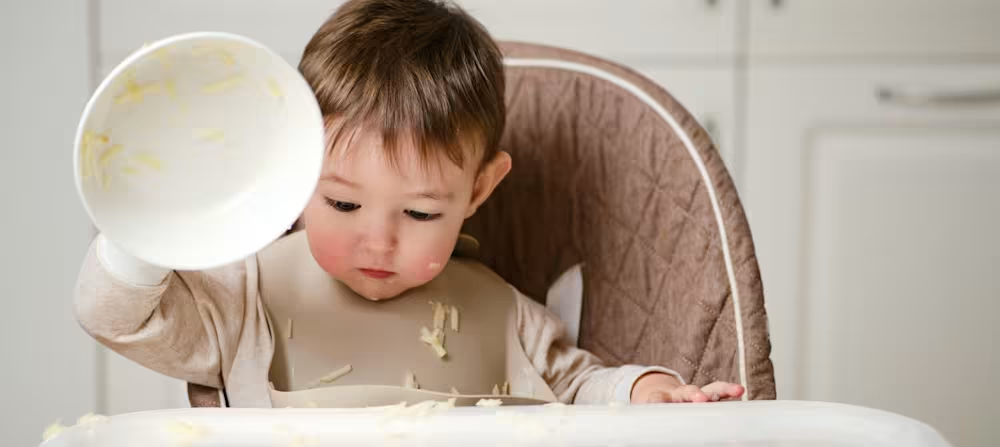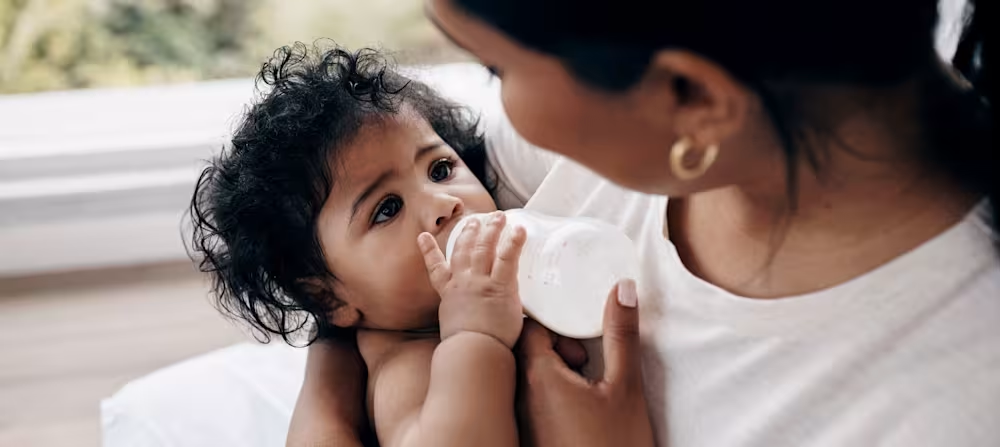Honey for infants: When can you feed honey to babies?
Updated Jan 12, 2026

One of the most popular questions I hear in my pediatric nutrition practice is, “When can you feed honey to babies?” Many of us know there’s something to know about honey for infants, but we’re not always quite sure of the specifics.
Let’s take a closer look at when babies can have honey and how to best introduce it.
Can babies have honey?
The American Academy of Pediatrics (AAP) recommends [] babies under 12 months should not eat honey, raw or cooked.
Introducing honey to infants too soon puts them at risk of a serious, though rare, infection called botulism. Botulism can occur when a baby consumes food contaminated with the bacteria Clostridium botulinum. This bacteria produces toxic spores in the body, which can lead to serious illness.
Is honey healthy for babies?
Honey may be used as a sweetener for babies older than 1 year. Its mild flavor is easy for little ones to enjoy, and in small quantities, it can be added to foods such as plain yogurt or vegetables to make them more palatable.
Honey may also be used as a cough suppressant for babies and toddlers [] over the age of 1 year old. Talk to your pediatrician to find out if this home remedy would work for your child.
Honey nutrients for babies
For babies older than 1 year, honey provides carbohydrates as well as some vitamins, minerals, and antioxidants — including small amounts of calcium, magnesium, and zinc. Honey is a sweetener, however, and should be consumed in moderation. Therefore, honey isn’t likely to be a significant source of nutrients in your child’s diet.
Honey for infants: When can babies eat honey?
Can babies between 6 to 9 months old eat honey?
No, babies 6 - 9 months old shouldn’t eat honey. This includes raw, pasteurized, and cooked honey. Make sure to check food labels to ensure they are free of honey.
Can babies between 9 to 12 months old eat honey?
It’s not recommended to feed honey to babies 9 - 12 months old, either. As your baby’s immune system is still immature, it’s best to wait a little longer before introducing honey.
Can babies over 12 months old eat honey?
Yes, you can feed honey to babies over 12 months old in small amounts. Make sure to serve it well mixed into foods or spread thinly on another food to make it easy to chew. Sticky foods increase the risk of choking when served in too-large portions.
Why can't babies have honey?
Babies can’t have honey because it increases the risk of a rare but serious illness called botulism. Botulism is a serious and life-threatening condition that requires emergency treatment. Signs of botulism include muscle weakness, weak cry, constipation, and more.
Once a baby is over 12 months old, their immune system is much better equipped to fight off illness and it is safe to serve honey.
How to introduce honey to your baby
After your child’s first birthday, you can add honey to foods as a sweetener. It can be consumed raw or used for cooking or baking. As with any form of sweetener or sugar, make sure to include it in your child’s diet in moderation.
Serving honey for baby-led weaning
Honey shouldn’t be used in the early stages of . See below for tips on preparing honey for children over 1 year old.
How to prepare honey for children over 1 year old
Serve honey raw by mixing it in with plain yogurt or serving spread thinly on toast or a muffin. You can also cook and bake with honey. To make some vegetables such as squash or carrots easier to enjoy, drizzle a little honey over the top before roasting.
Is honey a common allergen?
No, honey is not one of the common ; however, your child may have an allergy or be sensitive to any food. If you suspect your baby is having an adverse reaction to honey, stop serving immediately and contact your pediatrician.
Is honey a choking hazard?
Honey can be a choking hazard when served in large quantities. Since it’s sticky, honey may be difficult for small children to chew. Make sure to serve honey in small quantities, well mixed into or spread thinly on a food.
Takeaway
No honey before 12 months: Babies under 1 year old should not have honey in any form — raw, pasteurized, or cooked — due to the risk of infant botulism.
Botulism is rare but serious: Honey can contain Clostridium botulinum spores, which a young baby’s immune system can’t safely handle.
Honey is OK after age 1: Once your child turns 12 months, their immune system is more developed, and honey can be introduced safely.
Use small amounts and serve safely: After age 1, offer honey mixed into foods or spread thinly to reduce the risk of choking.
It’s a sweetener and not necessarily a nutrient: While honey contains small amounts of vitamins and antioxidants, it’s best enjoyed in moderation as part of a balanced diet.
Share article:
Note: The content on this site is for informational purposes only and should not replace medical advice from your doctor, pediatrician, or medical professional. If you have questions or concerns, you should contact a medical professional.
3 Sources
Share article:
